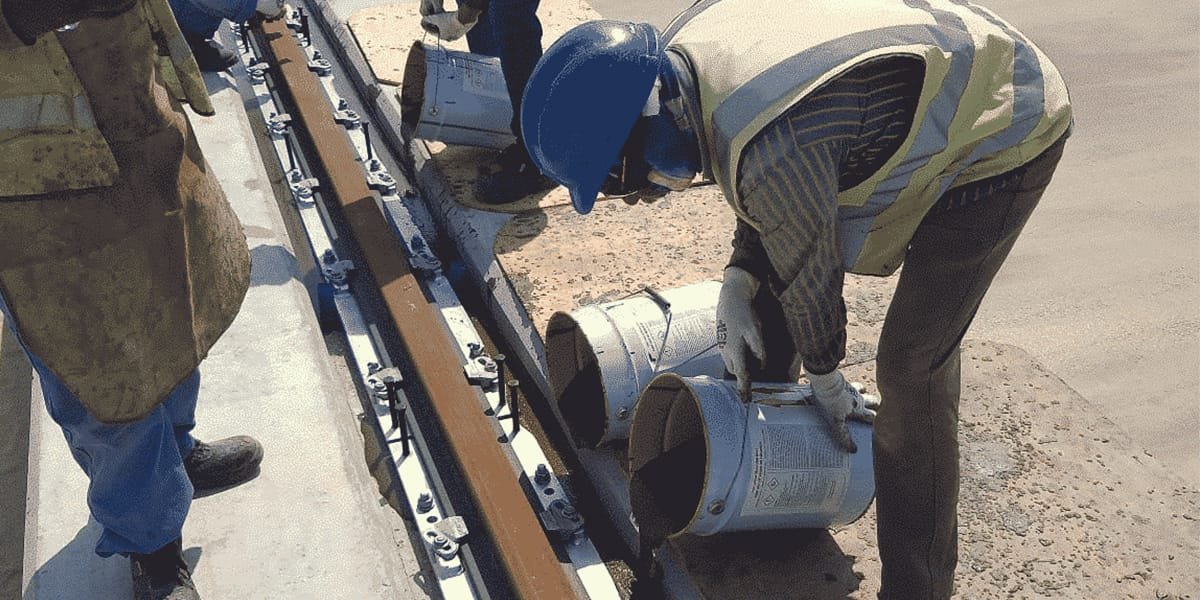
05 Dec Quick Curing Concrete: Properties, Uses, and Key Benefits
Have you ever wondered how some construction projects are completed so quickly? One reason behind this is quick-curing concrete.
Unlike regular concrete, it cures way faster, which helps builders speed up their projects.
Wondering what quick curing concrete is and why you should use it?
Let’s discuss all about this in detail.
What is Quick Curing Concrete?
Quick-curing concrete is a special kind of concrete. It comes with different kinds of accelerators like calcium chloride and Ca(NO3)2(H2O)x. These help the concrete to set in within 20-40 minutes after it is mixed with water.
Plus, it has Portland clinker, gypsum, and Al₂(SO₄)₃ that help speed up its hydration. Because of the fast-acting formula, it is used in projects with very tight deadlines.
Traditional Concrete vs Quick Curing Concrete
Quick curing differs from traditional concrete in terms of composition and performance. Here’s a detailed table for comparison:
| Feature | Traditional Concrete | Quick Curing Concrete |
| Curing Time | Takes days to set and fully cure | Sets and gains strength in hours |
| Strength Development | Gradual strength gain over time | Rapid strength gain within a short period |
| Uses | Ideal for large projects, foundations, slabs | Perfect for emergency repairs, roadworks, precast |
| Cement Type | Standard Portland cement | High-early-strength cement or specialized mix |
| Additives | Typically no accelerators | Includes chemical accelerators to speed up hydration |
| Workability | Allows more time for adjustments during application | Requires faster application due to rapid setting |
| Durability | Strong and durable over time | Durable, but may be more prone to cracking if not cured properly |
| Cost | Generally more affordable | Higher cost due to special additives and cement |
| Weather Sensitivity | Can be affected by extreme cold or heat | Performs well in cold weather with proper curing techniques |
| Project Timing | Suitable for standard timelines | Reduces overall project timelines significantly |
Properties of Quick Curing Concrete
To understand quick curing concrete in a better way, let us take a look at some of its properties:
Rapid Strength Gain
Since it has quality accelerators and binders, it can develop strength really fast. It reaches its peak strength within a few minutes to hours. This means it is ready for formwork removal or load-bearing use. The best part about this is that it can achieve flexural strengths of 2.2 – 3.2MPa in 90 to 180 minutes.
Less Shrinkage Prone
This type of concrete has a non-porous structure and high chemical resistance. Hence, it is 3-4 times less likely to shrink than regular concrete. It also means that quick concrete is less likely to crack under harsh conditions. In fact, quick-setting cement shrinks as little as 200 micro-strains in 28 days.
Temperature Sensitive
Moderate temperatures do not influence the performance of quick-set concrete. But, it may not be suitable in extreme temperatures. For instance, it is suggested not to use it in temperatures under 10 degrees centigrade.
Short Workable Timing
Another feature of quick-set concrete is its short workability timing. Since this kind of concrete sets fast, it also requires faster placement and finishing.
Advantages of Quick Curing Concrete
Now that we know about quick setting concrete and its properties, let us take a look at its advantages one by one:
Time Efficiency
The early setting and fast hydration in quick-setting concrete help it harden, speeding up the project. Special additives and a reactive mix help the concrete gain strength quickly, allowing the structure to be used sooner. This helps finish the project more quickly and keeps things moving forward.
Cost Savings
Because of its quick set action, it requires less labor hours to complete a construction task. This means that workers can move on to the next phase of the project much sooner by reducing overall project timelines.However, a high-quality quick curing concrete may cost higher than the regular concrete.
Versatility
Because of its quick set action, it requires fewer labor hours to complete a construction task. This means that workers can move on to the next phase of the project much sooner by reducing overall project timelines. However, high-quality, quick, curing concrete may cost more than regular concrete.
Cons
On the flip side, there are some disadvantages of using quick set concrete; let us talk about these:
Harder to Tweak
Quick setting concrete hardens within some minutes after getting in touch with water. This means that workers can not change the concentration of cement for placement, smoothing, or finishing.
Requires More Attention
This type of concrete can absorb moisture from its surroundings. It, in turn, accelerates the setting and hardening process. Rapid hydration requires specialized care. This is because the concrete is highly sensitive to environmental conditions such as humidity.
High Costs
Quick-setting concrete is more expensive than regular concrete. This is due to the inclusion of special additives that accelerate the setting process. It may reduce labor costs and project timelines, but the higher material costs can impact the overall budget. This is why sometimes it is less cost-effective for some projects.
Less suitable for Large-scale Applications
Large-scale projects usually require more time for placement and finishing. But, because of the fast setting times, it may not be ideal to manage large pours in an effective manner
Conclusion
So far, we have talked about quick curing concrete and the properties that help it cure faster than others. This kind of concrete can be used in various applications, such as quick fixes for roads, bridges, and much more.
Despite its quick curing at a molecular level, its strength remains uncompromised. However, for desired results, it is always wise to consider your budget and project complexity.
Lastly, it is highly recommended to consult an expert before choosing the ideal type of concrete for your application.
Need advice on selecting the perfect concrete for your application? Contact our experts today for tailored recommendations!


